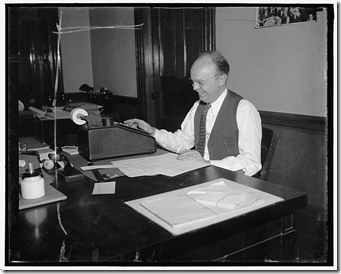Ex-Husband’s Failure To Allocate And Use Of Block Billing Resulted In Real Problems At Trial And Ultimate Denial Of Any Fees Incurred By Husband.
Adding prize winner. Washington D.C. “In a speed and accuracy contest for adding machine operators last night, William A. Offutt of the Washington Loan and Trust Company, was declared winner over a field of 30 contestants. The contest was sponsored by the Washington Chapter, American Institute of Banking.” January 29, 1937. Library of Congress.
Marriage of Nassimi, Case Nos. B259704/B260574 (2d Dist., Div. 4 Sept. 26, 2016) (published) is a case where a prior settlement agreement did not cover the situation of how husband and wife were to pay expenses in a rescission lawsuit involving husband’s community property business, although the settlement did provide that certain expenses relating to earn-out features of the compromise would not be the responsibility of ex-wife. The appellate court determined that wife should reimburse husband for one-half of the settlement which husband reached with the party suing for rescission, but denied husband any recovery for the fees and costs expended in the rescission lawsuit (affirming the fee denial by the lower court below).
Reason for the fee denial? The fundamental flaw was the ex-husband’s failure to meet his burden of establishing the amount of reimbursable fees and costs. The fee submissions were riddled with block billings and failure to allocate fees to the reimbursable rescissionary efforts versus the non-reimbursable earn-out payment issues and some unsuccessful counterclaims. This opinion is must reading when it comes to submission of fees during a trial or heavily contested evidentiary hearing, with the takeaways being to not block bill and to allocate fees between tasks—attorneys need to recognize when billing entries need to be broken down specifically between reimbursable and non-reimbursable tasks for purposes of having the lower court be able to award fees to litigants on reimbursable work.

